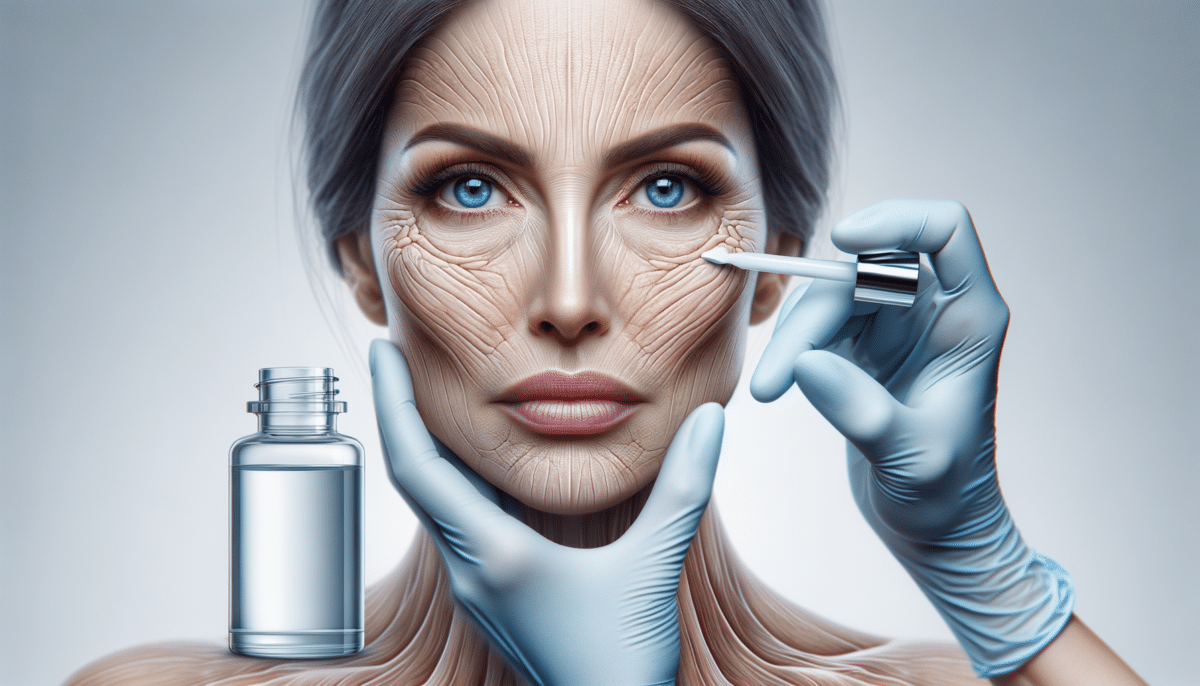Understanding the Aging Process
Aging is a natural process that affects everyone, but understanding how it works can help in managing its effects. As we age, our skin undergoes various changes: it becomes thinner, loses fat, and no longer looks as plump and smooth as it once did. This is largely due to the reduction of collagen production, a protein that provides structure to the skin. Additionally, the skin’s ability to repair itself diminishes over time, leading to the appearance of wrinkles and age spots.
Genetics play a significant role in how we age, but environmental factors such as sun exposure, pollution, and lifestyle choices also contribute significantly. For instance, prolonged exposure to ultraviolet (UV) rays can accelerate the breakdown of collagen, leading to premature aging. Understanding these factors is crucial for developing effective anti-aging strategies.
To combat these changes, it’s important to focus on both intrinsic and extrinsic factors. While we can’t change our genetic makeup, we can certainly influence our environment and lifestyle choices to maintain youthful skin for longer.
Skincare Ingredients That Make a Difference
The skincare industry is replete with products claiming to reverse aging, but not all are created equal. Certain ingredients have been scientifically proven to support skin health and reduce the signs of aging. Here are some noteworthy ones:
- Retinoids: These vitamin A derivatives are known for their ability to accelerate cell turnover and boost collagen production, making them effective in reducing wrinkles and improving skin texture.
- Vitamin C: A powerful antioxidant, vitamin C helps to protect the skin from free radical damage while also brightening the complexion and improving collagen synthesis.
- Hyaluronic Acid: Known for its hydrating properties, hyaluronic acid can hold up to 1,000 times its weight in water, helping to plump the skin and reduce the appearance of fine lines.
- Peptides: These amino acid chains are essential for building proteins in the skin, such as collagen and elastin, which help maintain firmness and elasticity.
Incorporating these ingredients into your skincare routine can provide significant benefits. However, it’s important to choose products that are suitable for your skin type and to use them consistently for the best results.
Healthy Lifestyle Choices for Youthful Skin
While topical treatments are important, they are only part of the equation. A healthy lifestyle plays a pivotal role in maintaining youthful skin. Nutrition, exercise, and hydration are key factors that influence skin health.
A diet rich in antioxidants, vitamins, and minerals supports skin repair and regeneration. Foods high in omega-3 fatty acids, such as salmon and walnuts, help to keep the skin supple and hydrated. Additionally, reducing sugar intake can prevent glycation, a process that damages collagen and accelerates aging.
Regular exercise improves circulation, which helps deliver oxygen and nutrients to the skin, promoting a healthy glow. Staying hydrated by drinking plenty of water is also crucial for maintaining skin elasticity and preventing dryness.
Overall, combining a balanced diet with regular physical activity and adequate hydration can significantly enhance the effects of your skincare routine.
The Role of Professional Treatments
Professional skincare treatments can complement your at-home routine, offering more intensive solutions to combat aging. Dermatologists and skincare professionals provide a range of treatments tailored to individual needs.
Some popular options include:
- Microdermabrasion: This non-invasive procedure exfoliates the skin, removing dead cells and promoting new cell growth for a smoother, more youthful appearance.
- Chemical Peels: These treatments use acids to remove the outer layer of skin, revealing fresh, new skin underneath and reducing the appearance of fine lines and age spots.
- Laser Therapy: Laser treatments can address a variety of skin concerns, including wrinkles, pigmentation, and texture, by stimulating collagen production and promoting skin renewal.
- Injectables: Options like Botox and fillers can temporarily reduce the appearance of wrinkles and restore volume to the face.
It’s important to consult with a qualified professional to determine the most appropriate treatments for your skin type and concerns. Regular professional treatments, combined with a consistent home care routine, can yield impressive results.
Conclusion: Embracing Aging Gracefully
Aging is an inevitable part of life, but that doesn’t mean we can’t do so gracefully. By understanding the aging process and making informed choices regarding skincare, lifestyle, and professional treatments, we can maintain healthy, youthful skin for longer.
It’s essential to adopt a holistic approach that combines effective skincare ingredients, healthy lifestyle habits, and occasional professional treatments. Embracing aging with a positive mindset and taking proactive steps can enhance both our appearance and our overall well-being.
Ultimately, the goal is not to stop aging but to age well, with vitality and confidence.
